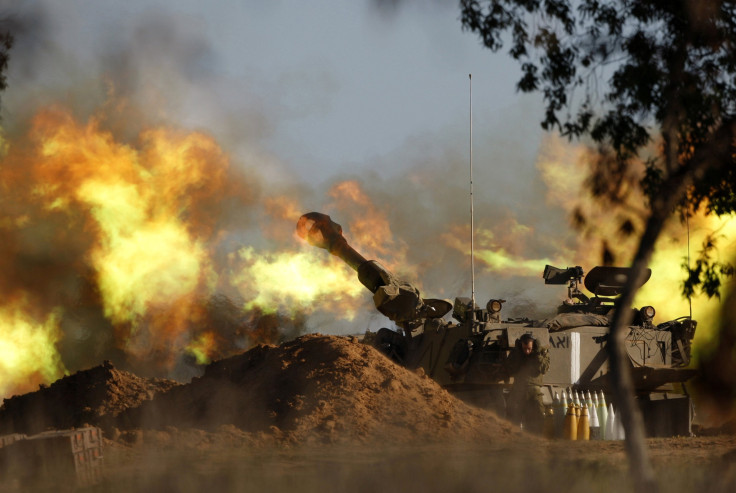UK: Israel A Threat To Middle East Peace, According To Edward Snowden Leaks

Newly leaked documents revealed that U.K.'s intelligence agency surveilled Israeli military and diplomatic entities from 2008 to 2009, once labeling Tel Aviv as a genuine threat to stability in the Middle East, French daily Le Monde reported Thursday.
The extent of the U.K.'s spying on Israel came to light after former National Security Agency employee turned whistleblower Edward Snowden shared top secret documents with The Intercept, an online media outlet dedicated to publishing Snowden's leaks. The files reportedly detailed efforts by the U.K.'s intelligence bureau General Communications Headquarters (GCHQ) to snoop on its ally Israel during the Iranian elections.
“The Israelis constitute a true threat to regional security, in particular, because of the position of this country with respect to the Iranian dossier," one classified GCHQ file reportedly read, according to The Independent.
The U.K.'s intelligence campaign reportedly involved more than just military targets. GCHQ carried out surveillance on Ophir Optronics, an Israel-based company specializing in infrared optics and laser equipment used in high-tech weaponry. Leaked internal communications also discussed Israel's advanced aerial reconnaissance capabilities and other files went as far as to suggest that the U.K. tapped prominent research centers at the University of Jerusalem.
Snowden's leak showed that GCHQ also monitored Palestinian interests, including Palestinian National Authority President Mahmoud Abbas and other top-level officials within Ramallah's government. The timeline of the leaks coincided with an Israeli offensive on the Gaza Strip. In December 2008, Israel launched a massive campaign of air strikes along with a ground invasion against the Palestinian coastal territory, which is administered by Hamas, an Islamist movement opposed to Israel.
The U.K. publicly supported Israel's move, dubbed Operation Cast Lead, that led to about 14 Israeli deaths and over 1,000 Palestinian fatalities. Internal transmissions revealed a more complicated relationship between U.K. and Israeli officials.
"Problems with Ruffle (the code name for the ISNU). Ruffle cancels work sessions at the last minute. Requests for apologies made at the highest level are not answered," one March 2009 GCHQ communication read, according to Le Monde.
The news followed articles in January by The Intercept and German weekly Der Spiegel on the NSA's lengthy surveillance of Israeli military transmissions. The information was based on documents revealing that the NSA had unraveled the code for communications between Israeli military planes, drones and bases and monitored them for 18 years.
© Copyright IBTimes 2025. All rights reserved.






















